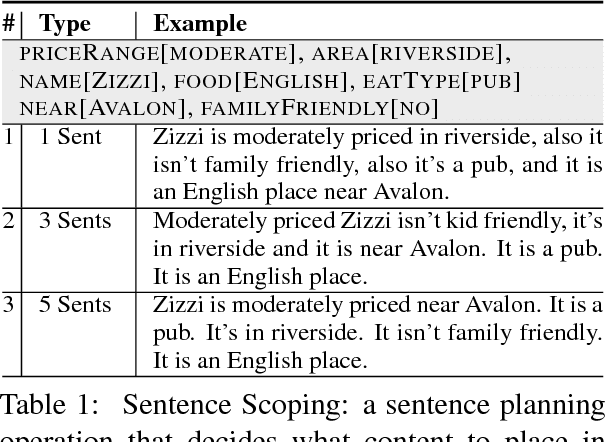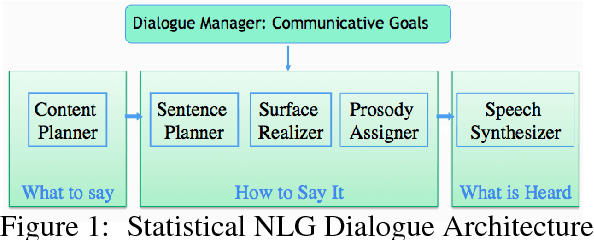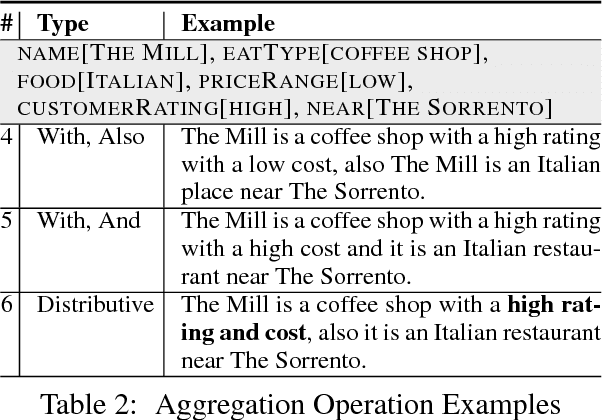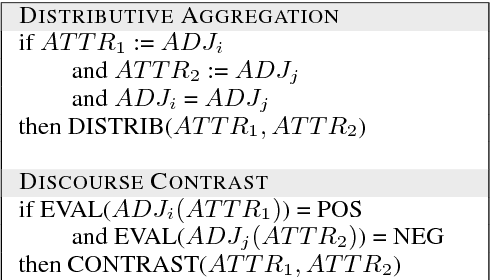Can Neural Generators for Dialogue Learn Sentence Planning and Discourse Structuring?
Paper and Code
Nov 01, 2018



Responses in task-oriented dialogue systems often realize multiple propositions whose ultimate form depends on the use of sentence planning and discourse structuring operations. For example a recommendation may consist of an explicitly evaluative utterance e.g. Chanpen Thai is the best option, along with content related by the justification discourse relation, e.g. It has great food and service, that combines multiple propositions into a single phrase. While neural generation methods integrate sentence planning and surface realization in one end-to-end learning framework, previous work has not shown that neural generators can: (1) perform common sentence planning and discourse structuring operations; (2) make decisions as to whether to realize content in a single sentence or over multiple sentences; (3) generalize sentence planning and discourse relation operations beyond what was seen in training. We systematically create large training corpora that exhibit particular sentence planning operations and then test neural models to see what they learn. We compare models without explicit latent variables for sentence planning with ones that provide explicit supervision during training. We show that only the models with additional supervision can reproduce sentence planing and discourse operations and generalize to situations unseen in training.
 Add to Chrome
Add to Chrome Add to Firefox
Add to Firefox Add to Edge
Add to Edge